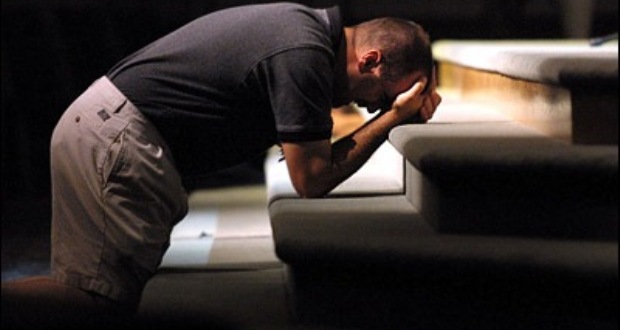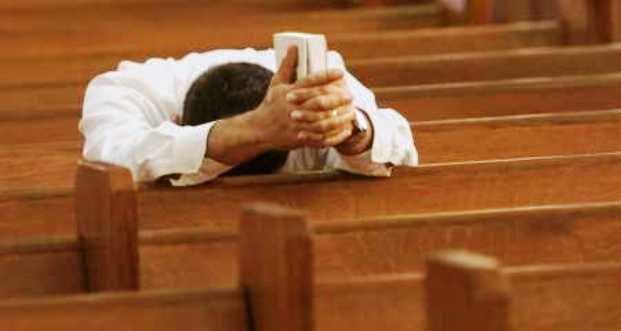Is This The Fast God Wants?

Very often at the beginning of Lent, many are concerned with fasting and what they should give up for Lent. The incredible thing is that as Lent is over – if not before it is – many pick back up the very things they opted to give up. The question that begs to be asked is has any real growth taken place in such cases? Are the things given up for Lent worth taking up again? Hopefully by the end of this post, the answers to these questions will become clear.
There is one word that appears quite often in the first reading and gospel – that word is fast. I suppose many make fasting out to be more than it really is. In The Catholic Church, it certainly does not have the same prominence as it does in other Eastern religions. Many treat fasting as an end in itself when it is not. This is the Catholic Church’s teachings on fasting:- throughout the Church’s entire Liturgical year, there are only two (2) mandatory fast days – these are Ash Wednesday and Good Friday. Fasting as defined by the Catholic Church, consists of one (1) whole or normal meal, and two smaller ones with nothing in between the meals. Fasting is applicable to persons between the ages of 18 and 59 years old. All of this however, does not mean that Catholics cannot fast nor does the Catholic Church disapprove of fasting outside the stipulated two days, nor by persons older than 59 years old. Additionally, when you look at the Catechism Of The catholic Church, you will also notice that the prominence placed on fasting is the same as that of the Church (ref. CCC 1434, 1438, 2043). Why is this so. I believe today’s readings point us to the answer.
In the first reading the is a conflict between how the people of that time perceived fasting to be and how the LORD intended it to be and God seeks to address this through the Prophet Isaiah. The people were all caught up with externals and with being seen fasting when their hearts were not converted. Their hearts were far from God. They continued with their sinful and oppressive ways and thought that by fasting, they were pleasing God, but they weren’t and God made that quite clear. This is the fast that I desire declares the LORD.
“Is such the fast that I choose, a day for a man to humble himself? Is it to bow down his head like a rush, and to spread sackcloth and ashes under him? Will you call this a fast, and a day acceptable to the LORD? “Is not this the fast that I choose: to loose the bonds of wickedness, to undo the thongs of the yoke, to let the oppressed go free, and to break every yoke? Is it not to share your bread with the hungry, and bring the homeless poor into your house; when you see the naked, to cover him, and not to hide yourself from your own flesh? Then shall your light break forth like the dawn, and your healing shall spring up speedily; your righteousness shall go before you, the glory of the LORD shall be your rear guard. Then you shall call, and the LORD will answer; you shall cry, and he will say, Here I am. “If you take away from the midst of you the yoke, the pointing of the finger, and speaking wickedness, “
This sounds like Matthew 25 doesn’t it? God is saying that He is not interested in the externals but rather, His desire is that hearts be changed; that our hearts be transformed. Without that inner transformation, fasting will be meaningless external signs and many will not even make it to the end of Lent before they begin reneging on their Lenten fast. Jesus spoke about this when He said, “Nothing that goes into a man from the outside can make him unclean; it is the things that come out of a man that make him unclean.” (Ref. Matthew 15:11, Mark 7:15) Without that inner conversion it will become very easy to continue in the ways of sin after all has been said and done during the season of Lent.
So the process of fasting should begin internally, or should be triggered by internal transformation, then it will be manifest in the externals. When the heart of a man has been changed, his deeds will reflect that change. There should first be a transformation of the heart through a deep and life changing encounter with the LIVING GOD. It is then that this encounter, this transformation will manifest itself in works of charity. It is then that avoiding sin and being charitable to others will no longer be a seasonal event but rather a way of life.






